City Government
Eric Christ on Upcoming Rezonings, Citizen Engagement, and the SPLOST November Vote
Published
2 years agoon
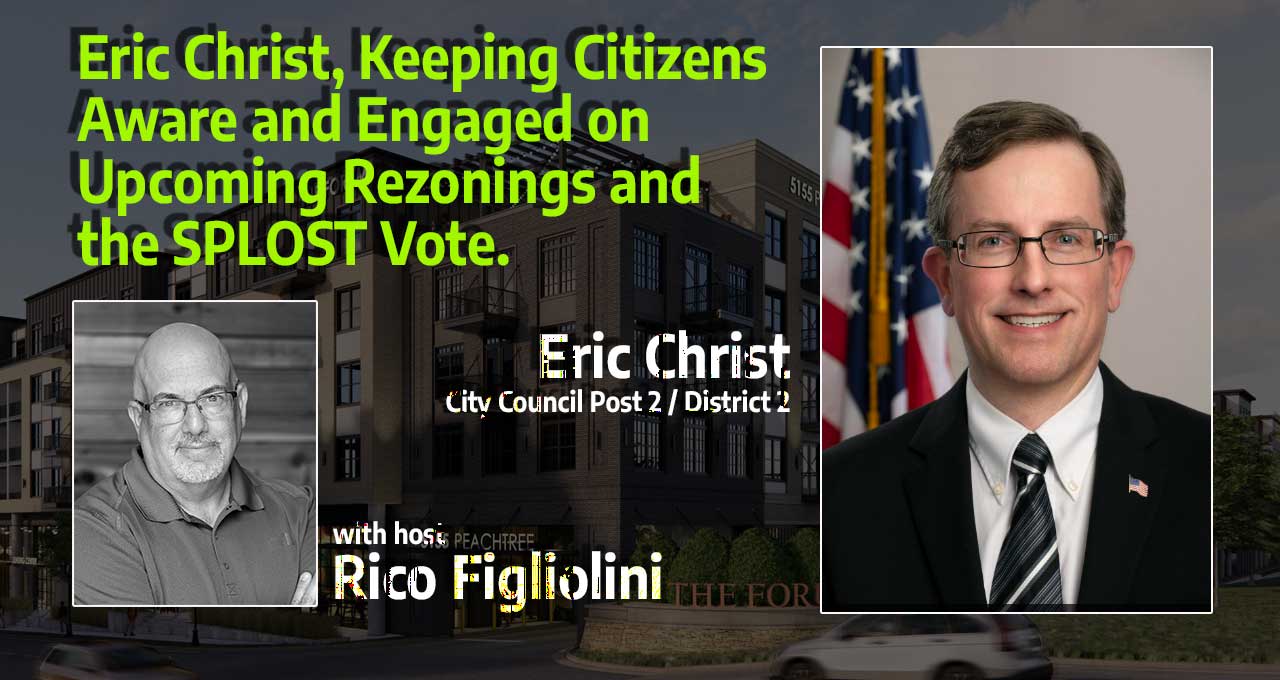
On this episode of Peachtree Corners Life, Rico is joined by City Councilman Eric Christ. Eric has been serving on the City Council for over six years and he actively shares his experience and knowledge about the city on his newsletter and social media to keep the public engaged in what’s going on. Together Eric and Rico discuss topics such as Rezoning issues, updates on the Forum, the upcoming SPLOST vote, and much more.
Listen to “Eric Christ on Upcoming Rezonings, Citizen Engagement, and the SPLOST November Vote” on Spreaker.Resources:
Facebook Page:https://www.facebook.com/votechrist
Email: EChrist@PeachtreeCornersGA.gov
Timestamp:
[00:00:30] – Intro
[00:03:03] – Keeping Citizens Aware and Engaged in Rezoning
[00:07:28] – Enhancing the Rezoning Process
[00:12:18] – New Updates on the Forum
[00:23:04] – Thoughts on Housing Issues
[00:36:48] – The Upcoming SPLOST
[00:42:25] – Closing
“Everybody’s entitled to their own opinion about if a particular project is beneficial to the city. But I think it’s important that everybody has the facts… Just being on the City Council, we work on these things all day long, oftentimes. And we’re more familiar with the project than what somebody else has read on social media, or they were chatting with their neighbor as they were out walking their dogs. So, that’s why you see me active in those areas.”
ERIC CHRIST
Prodcast transcript
[00:00:30] Rico: Hi, this is Rico Figliolini, host of Peachtree Corners Life. This is a podcast that we do every so often. We try to do it at least once, if not, twice a month, to bring in people like our current guest and others that are specialists in the field that they’re in. Or represent us in the city. So Eric, I appreciate you being on the show with us.
[00:00:50] Eric: Yeah. Glad to be here, Rico. Looking forward to talking with you.
[00:00:53] Rico: Same here. Eric Christ is City Council Member, post two. Has been a City Council person actually for how long now?
[00:01:01] Eric: Yeah, so I was first elected, Rico might recall, at a special election back in 2016. One of our original city council members had resigned to seek state house office, since that opened up the seat. And we had a quick special election. So it’s been over six years now since I was elected.
[00:01:18] Rico: It’s gone by fast. We’re celebrating 10 years, this year, of the city being in existence. So I want to, before we get right into that, let me also say thank you, big thank you, to EV Remodeling, Inc. who’s a current sponsor of the podcast. And has been supporting us, not only advertising in our publications, but as a corporate sponsor. Helping us making sure that we have the facility to be able, if you will, to provide good journalism in this community. Being able to bring stories and curating the things that go on in our lives here, both through these podcasts, the magazine and our websites. So visit them, Eli is the owner and he lives here in Peachtree Corners, EV Remodeling, Inc. They’ve done great work out there and you certainly should check them out. So now having done that, let’s get into the meat of some of the stuff that’s going on. We haven’t had a podcast, you and I, in a while. So this is great to be able to do this. So the first thing I think that we want to, you’ve been active on Next Door every once in a while. I see you on there trying to explain things to people that sometimes post. And there are erroneous things out there sometimes, sometimes factual things. But because so many people are on Next Door talking about different developments and stuff like that, facts can be not always facts. Sometimes misinformation out there, but you’ve been able to go out there and keep things straight for us, and I appreciate that. But one of the things that you’re an advocate of, and I think it’s really important, is the ability of residents to be aware of and not just aware, but engaged in the rezoning process. Because there’s a lot of it going on. God knows in the last few years, certainly a lot more has been going on. So tell us a little bit Eric, about, you know, how you feel about that and what citizens can do to be aware and engaged in this process.
[00:03:03] Eric: Happy to do that. And you know, my personal philosophy is twofold. One, obviously everybody’s entitled to their own opinion about if a particular project is beneficial to the city. But I think it’s important that we’re all, everybody has the facts, you know? So if on Next Door, on Facebook, I see somebody commenting. I heard they’re tearing this down to build this. And setting aside whether what they’re building is good or bad, if that’s not accurate, that particular comment or the size of the comment or the number of units being developed, you know? Yeah, you’ll often see me chime in and provide the facts. And just being on the City Council and we work on these things all day long, oftentimes. And we’re more familiar with the project or than what somebody else has read on social media, or they were chatting with their neighbor as they were out walking their dogs. So, that’s why you see me active in those areas. But let’s talk about the current process and what I think we can do to improve the opportunities for residents to be aware and engage in this process. And this stems from comments. I think in like in my first year in office, I’d been talking to somebody and they’d say, I didn’t even know that was being voted on. And that always, you know, affected me to say, well, people need to, I want them to know things are being voted on. Because if they let’s say, if no one shows up for a public hearing. There’s two reasons, right? Potential reasons. One is, no one particularly cares about that particular development. Or they do care, but they didn’t know about the meeting. And one of the things I’d like to say is that we don’t have all the best ideas or all the ideas sitting up there on the Dias at council meetings. And hearing from the community members is an important part of the process. So we don’t have a monopoly on the good ideas. So here let’s talk about how it works today in Peachtree Corners. So somebody owns a piece of property and they want to apply for a change. And that can be either a change in the conditions that are on their property. So they don’t wanna change the zoning. Let’s say it’s zoned commercial, but there’s a condition that says no pet grooming establishments on this property, for some reason. Normally pet grooming is permitted, but this particular property says no pet grooming. So that’s a change in condition. And then the other one, which is perhaps more significant is a change in zoning, right? So from commercial to residential or from residential to commercial. And what we’re seeing a lot of right now in the city is requests to change from, generally various types of commercial zoning to what’s called mixed use development. And under our ordinance, mixed use requires three or more different kinds of uses, but it does include residential. So today in commercial zoning, like up and down Peachtree Parkway or on Holcomb Bridge. You can do lots of different types of uses, but you can’t live there. You can have a hotel, you can’t have permanent residency. And we’re seeing a lot of requests for residential developments. So the applicant makes that request, they submit it to the city staff. They have to submit an entire packet with a checklist, and staff goes back to them, says, you’re missing this thing. You haven’t done a traffic survey yet. But so once a full packet is accepted, then they get scheduled for a hearing before the planning commission. And then a hearing before the city council. And today in Peachtree Corners, while staff will often recommend that they also hold a community meeting before that, they’re not required to. So you always do have those two opportunities for a public hearing, right? And let’s talk quickly, what’s the Planning Commission versus the City Council. City Council obviously elected by the voters of Peachtree Corners. Seven of us, the mayor and six council members. The planning commission is appointed by the City Council and acts as an additional filter opportunity for public participation in the process. What the Planning Commission does is makes a recommendation. They don’t make binding decisions. So they will hear a request for rezoning, let’s say. They will hold a public hearing. They will ask some tough questions of the applicant, of the staff. Take the input that they get from the public, both in support or opposition. And then they’ll vote on a recommendation. So when it comes to us at the city council, the packet will say planning commission recommends approval or recommends denial. And then when it gets to the City Council, then we go through that process again. Hold a public hearing, staff presents their analysis, and then we vote. And that’s the final decision on that.
[00:07:28] Rico: There is a spot in there, when it comes to the City Council, there’s a first read at one meeting and then it goes to the next City Council meeting and that’s where the actual vote and public comments are allowed. Right?
[00:07:40] Eric: Correct. So because a rezoning. Is a zoning of each parcel in the city is defined as part of our ordinances, it’s actually part of our, the laws here in the city of Peachtree Corners. So a change in zoning is a change in those laws. And under our charter, as a city, a change in our laws requires that we announce it at one council meeting. That’s the first read. And then we wait until the next council meeting to vote on it. So it’s another opportunity for people to be informed is that they’re reading the City Council agenda. Like on Tuesday night coming up, we have a council meeting, you’ll see a section on the agenda for first reads. And really just, they read the title. We don’t vote, we don’t discuss it. There’s no public hearing. It’s just another alert. So one of the things I’ve been working on to enhance this process, making sure people are aware of it is, what we currently do is when there is a rezoning or a change in conditions on a parcel, the applicant has to post a big yellow sign on the property. You might have seen, it’s not big it’s like three foot tall by three foot wide or something like that. And it says, this parcel is subject to you know, hearings. And here’s the dates of the planning commission. And here’s the date of the City Council. Neighbors within a certain distance, so property owners who have bought that property within a distance of 500,000 feet are sent a letter in the mail. City staff also puts it on the website. But that’s about it. So one of the things I do particularly for people, you know, people who subscribe my newsletter is I promote those upcoming events. I want people to know about them. And one of the things I proposed in the past, I didn’t get a consensus from other council members, but planning to promote it again is to do something that they do in the city of Sandy Springs, which is to require a community meeting for every rezoning. So not everything that we vote on, as a city council, but every rezoning. So if you go see one of those yellow signs on a parcel in the city of Sandy Springs, it’ll have the Community Meeting date and the Planning Commission date and the City Council dates. They’re all together.
[00:09:49] Rico: So is that something the applicant would actually set up a public meeting versus let’s say, in Peachtree Corners usually United Peachtree Corners Civic Association is the host of a public meeting of that sort.
[00:10:02] Eric: Yeah. So the, the way they do it in Sandy Springs is they don’t specify how you do the community meeting. Like, do you wanna, you know, have the Peachtree Corners Civic Association at their meeting. You just have to have one, you have to capture an attendance sheet. And you have to take notes from the meeting. And Sandy Springs, they actually require two community meetings. One before planning commission, and one between planning commission and city council. And the other thing they say, and Sandy Springs is a little bit bigger than us, they’re fairly stretched out. One of the meetings has to be in the same council district as the project. And the second meeting could be somewhere else. That’s not as relevant to us here in Peachtree Corners. We’re a fairly compact 16 square miles. So that’s one of the things I’ll be working on, can we adopt some elements of what Sandy Springs does to make sure that there’s a community meeting component as well?
[00:10:53] Rico: Even with people that know, or feel they’re aware of things going on, are not always aware of things going on, right?
[00:10:59] Eric: Right.
[00:11:00] Rico: And so it’s a good thing that, you know, you have a newsletter. In fact, how can someone subscribe to that newsletter?
[00:11:06] Eric: Yeah, actually if you go to Facebook, Christ for City Council on Facebook. There’s a link there to subscribe to the newsletter. Drop me an email at, EChrist@PeachtreeCornersGA.gov, which you can find on the city website. Happy to add folks to that.
[00:11:21] Rico: Excellent. So if people do that, they’ll get the same newsletter I get, which is really informative. Even I, who publishes these magazines, don’t always know every single thing going on. And I’m like, wow. You know, I wish I knew that. So I love your newsletter. So keep it up. But what I find too, is that people are starving for stuff. The good thing about the web is that you can see the traction of certain types of stories. So as much as I like putting out stuff about restaurants and other things, the biggest hits, the very biggest hits that we get is on developments. And rezonings, and people wanna know what’s going on. I mean, the changes coming to Peachtree Corners with the Forum, that piece had legs. Not only when it first was put out a month ago, but when we started reposting it again on social media to let people be aware of it. It was the top read piece on the website, we got a decent amount of traffic.
[00:12:18] Eric: There’s an example of one. So like the Forum being so critical to the economic vitality of Peachtree Corners, that was one where not only did I point out in my newsletter or Hey, these public hearings are coming up. I actually, I attended the community meeting, you know, along with about 200 folks there. And I wrote up my notes when I heard the applicant saying and shared those in my newsletter and also on, Next Door. And yeah, I got, sort of got a lot of engagement about that. And once again, this was just my impression of what I heard this wasn’t Eric speaking, this was Eric’s notes from what North American Properties had said in terms of what exactly were they doing related to parking in the Forum and a hotel. And then of course the one that gets people’s ears most perked up is adding a residential component to the Forum, right?
[00:13:06] Rico: So the interesting part, I was at that meeting too, and I had a reporter there and we unashamedly took your map from your newsletter, by the way. That you posted on Next Door. Unashamedly. I redid the map a little bit. Because, you know, we just had to. But it had all the same information you had and it pointed out all the same information that you pointed out. And it just made things easier for people to understand where everything was going. And speaking about that, there’s gonna be a first read coming up at this City Council Meeting for the Forum mixed use, which is, it’s a request for rezoning. If I read the short part here, right? Request for rezoning 44 acres from C2, commercial two, retail to MUD, to mixed use development, to allow for this new mixed use, which is the parcel, which is the Forum.
[00:13:56] Eric: Right.
[00:13:57] Rico: And that will allow because of the mixed use structure, allow the apartments to be put there and the hotel. Which I think still could have been put there, but that probably would’ve required some adjustments.
[00:14:09] Eric: Yeah. Well, generally in C2, a hotel is permitted. But staff, when they researched it, discovered that when the Forum, the property was first rezoned to permit the development of the Forum it was zoned light industrial back in the day. So in the late nineties when it was converted into, from M1, light industrial, to C2, which is a mid-level commercial, they did include a condition that no hotels, so.
[00:14:36] Rico: Really? Okay.
[00:14:37] Eric: Right. So the north American properties, you’re right. So they’re now coming to the city. They’ve taken feedback from the community meeting. And they’ve requested two changes. One is a change in conditions to permit a hotel. The second is to rezone the 44 acres. And that doesn’t necessarily mean that they’re gonna redevelop every piece of the 44 acres. That’s the parcel they own, that’s how big it is. And they wanna change its zoning from C2 commercial to mixed use. Which is for example, mixed use is what the Town Center is zoned. The restaurant and the retail and the movie theater. Even the town homes, all that parcel that’s the Town Center, that’s zoned mixed use.
[00:15:15] Rico: Right, which is interesting because really when you look at it, they’re owned by different, right? The retail is owned by Fuqua. The Town Center is owned by and the parking deck is owned by the city. And I think those town homes are owned by different developer also, if I’m not mistaken.
[00:15:31] Eric: Yeah. Well now they’re actually owned by individual property owners. All of them have been sold. Right. But the zoning underneath the town homes, underneath the restaurants, underneath the parking deck, the foundational zoning is mixed use development. Right.
[00:15:45] Rico: So going back to, let’s go back to the Forum for a minute. Because that is probably the biggest thing going on. As far as that would affect the community, with regard to that retail space. At my last count 14 or 16 empty storefronts. And now that North American Properties took it over, they want to be able to put density there. Because density, as everyone sees in all these developments is important, right? And the apartment versus condo, let’s say, density that these places need. The philosophy is that residential with apartments has a better turnover. And because of that is better for retail. Versus equity ownership.
[00:16:24] Eric: Well, listening, and this is Tim Perry, North American Properties, this is from his presentation on Tuesday night, they presented to planning commission, right? And so I had an opportunity to attend and listen. What he talked about from their perspective, as looking to create a vibrant retail, restaurant, shopping center and maintain it that you want people who live for years and years nearby. Which we have. Amber Field, Peachtree Station. We’ve got lots of single family homes. You want people who live there, but perhaps turnover a little more frequently, like in an apartment style setting. They’re there for 1, 2, 3 years. And you also, ideally, you want people who are only there for a day or two with a hotel.
[00:17:05] Rico: Correct.
[00:17:06] Eric: And the reason they talk about looking for that mix of users of customers is that as you know Rico, we get bored with the same restaurants, right? If we, you know, how many times, right? And so they felt that, or they feel that it’s important that having, you know, people who are staying at a hotel, every night they’re new, right? And going out to eat. People who are living in the apartments. They turn over every two to three, three years, right? Well, then you also do need your repeat regular customers as well, who are coming to Home Goods more often or frequently, if you’re living in a single family detached home in the area. And then the other thing that he talked about is having that mix of potential customers helps activate the property from early in the morning, till later in the evening. Right? So that if your people are living on the property, then they’re stopping to get a cup of coffee or a bagel before they head off to work, when they come back home in the evening. So that changes it from a, right now, the Forum starts to get going in the morning about 10:00 AM-ish, right? And then, but by about seven o’clock at night. It’s pretty quiet. Except on Friday and Saturday nights. And they would love to see that more from 6:00 AM to 11:00 PM. From his comments, they view that as that also attracts retailers. And I’m not, that’s not my business but from listening to all the various presentations we’ve had over the years at City Council, retailers are very picky about who they want to locate next to. Who are your anchor tenants? What other, do you have competitors of mine? I don’t wanna be there. But I wanna be near other stores that attract the same type of buyers, customers that I’m looking for, right? If I’m in women’s apparel, I want to make sure that I’m not the only woman’s apparel store in that shopping center. I want to have a couple, right? He was talking about Lulu Lemon athletic apparel. Primarily women’s, but they have men’s as well, had been in a little popup store, they call it for a while. But now that based on what they’re seeing with the Forum and the investment. They are, I don’t know if they’ve signed it yet, but my understanding is they’re intending to take a permanent larger space at the Forum. And that’s what North America was looking to do is curate that mix of retail, restaurant. And they feel residential is an important component.
[00:19:21] Rico: And I think their experience in it is important too. Because Avalon, Atlantic Station, some of the other properties they have, Colony Square, I think was another one they have. And the fact that those tenants in those places know NAP, they know North American Properties, they know what they want to do. And they’ll probably more likely be willing to move to invest, if you will, in space then at the Forum. Because they know what North American Property has done at these other locations and what they wanna do here. So the density of the departments in that mixed use at the Forum. It was close to, I forget what it was now, 300? 300 units maybe, or 260?
[00:20:00] Eric: No, on the Forum itself. So on the Forum side of Peachtree Parkway, what they proposed at planning commission was 381.
[00:20:07] Rico: 381. Okay.
[00:20:10] Eric: So, and because from a density, the way the density calculation works is you divide 381 into the total size of the property. So you divide into 40 acres and it’s not particularly dense at that level. Right? But their plan is to put, if the council approves it in August, the residential buildings would be on Peachtree Parkway. So as far away from like the Amberfield side of the Forum as possible. Not right up against Peachtree Parkway, but it would be built on top of the upper parking lots behind Barnes and Noble.
[00:20:41] Rico: There’s a rendering in that, packet that shows it like an L-shape. It actually is the back half maybe of where Barnes and Noble is. Because part of that building will become apartments. So it’s an L-shape that way. And then on the other side of it, of call it the Forum Boulevard, on the other side would also be units as well. I think coming up to Peachtree Parkway.
[00:21:02] Eric: Correct, yeah. On the other side, on the what do you want call that, the Mojito side or the, where the bridge, where the pedestrian bridge comes across, would be the hotel and about a third of the apartment units.
[00:21:12] Rico: Right. The hotel, how many units? I think it was.
[00:21:15] Eric: They said they hadn’t finalized it just yet, but in the 125 to 175 range. So let’s call it one, one-fifty. One of the interesting things that I took away, they have a hotel up at Avalon, right? And so they once again, based on their experience, they’re seeing apartments, long term residents like we have at the town homes across the street or at Amberfield behind. But having that hotel is an important part of the mix that only about a third, I think you said 35% of the people at the hotel arrive by car. All the way up at Avalon. 65% don’t bring a car. They’re coming by Uber, or Lyft, or some other way, right? Somebody had a question, and asked well, how many you know, cars? So if you say 150 rooms, so a third of 150, that’s 50 cars, right? Is coming from the hotel component type of thing.
[00:22:02] Rico: Interesting. Probably from the airport, I bet.
[00:22:05] Eric: Yeah. The other thing he shared is that at Avalon where they have over 500 rental units, the median age, so half the people are older than 53. And that the average household income for the apartment units is like over $200,000. Because they’ ve been talking that their focus, their target market is not families. Because who wants to raise a family in a one bedroom apartment. But is young professionals, singles, or just married couples. Or then at the other end of the life cycle is couples who’ve sold their 5,000 square foot home in Peachtree Station, but aren’t ready to leave Peachtree Corners just yet. But they wanna have the convenience of the lock and leave and, you know, not worrying about a yard maintenance and those types of things, so.
[00:22:50] Rico: Yeah, for sure.
[00:22:51] Eric: And those stats board out, the other thing he shared was that of those 500 apartments, there’s one school age child. So that a school bus comes to Avalon and it picks up one child out of 500 apartments.
[00:23:04] Rico: Interesting. Now obviously Alpharetta is a little different from us, but I can see that. And quite frankly, I mean, coming up 141, I mean, if people can’t afford to live in the city inside the perimeter, we’re not that far from work inside the perimeter. And plus, if we continue to grow the way we are and Intuitive Robotics is just the beginnings of what we’re seeing as far as businesses wanting to build out in Peachtree Corners of that type of nature, high tech work. Then you’re definitely talking about higher income, right? I mean, at some point there’s also the idea of affordable housing that has to be here in Peachtree Corners. But I believe we have some of that, at least if not equity ownership.
[00:23:46] Eric: Yeah, we don’t have any like city mandated. We, on no development project to date, have we, you know, required a developer to set aside a certain percentage of the units. And the way that generally works is that you take the median income and, or the poverty level and you set up a max above that. And then, you know, using the rule of thumb that you don’t want to be spending more than 25 to 30% of your annual income on your housing expenses. So that you can set some rental targets, but we don’t have any of that in the city. There might be some state or federal mandates on certain projects, but the city has not required an affordable component to any projects.
[00:24:25] Rico: Is there any thoughts on that?
[00:24:27] Eric: Yeah, we’ve talked about it a couple of times. I think there’s, and once again I’m only speaking for myself, right? Every council member is, you know, goes through their own analysis. That is that we have a diversity, a variety of employment opportunities in the city and which is a good thing. Whenever you have limited variety of housing types, employment types, then as the market conditions change, you can get into trouble, right? If you’re having a housing recession or an employment recession in different employment types. So one of the things we have in the city is opportunities for people to work at restaurants and retail. And we need those employers to be able to have workers, right? And those folks aren’t buying a 600,000 you know, dollar house. Particularly as a young single, you know, working at Lazy Dog or something. And if they have to drive from too far away, so yeah. What can we do to make sure we can support all of the employment needs that we have in the city while also providing the quality of life that people expect. And why they chose to come to Peachtree Corners?
[00:25:32] Rico: Yeah. You know, I’ll go to the local Dunkin Donut and every once in a while the lady says, do you know anyone that wants to work? It’s just impossible to get people to work. Even at, I don’t know $15 an hour, $12 an hour. You know, that’s not a living wage per se. But even kids are not even.
[00:25:48] Eric: Yeah, like our, my neighborhood pool here at Neatly Farm is desperate for lifeguards. The company that we use each year there, we said, we want lifeguards for this many hours, and then we can’t do that. You know I can maybe get you a Friday, Saturday, Sunday. I can’t staff, I don’t have enough lifeguards to work. Just cause, right now there’s a, an abundance of job opportunities.
[00:26:08] Rico: I guess. So some people just don’t wanna work. Take the summer off and they go into college after that. You know, young kids. So, I mean, as far as other, and there’s another actually mixed use that wants to come on. It’s Innovation Lofts. That’s almost like four acres and that’s a mixed use, multi-family residential on Peachtree Corners Circle.
[00:26:29] Eric: Right. So that’s the vacant property behind the Chase Bank. So that’s right on the Town Center side of the street. So that, and there’s where, the density calculation makes a little more sense, right? Because if you take 250 units into four acres. And so that one, as you recall, or you might remember way back in 2017, that same parcel had been rezoned for a potential hotel slash apartment complex that then got derailed by COVID and financing didn’t come through. And that zoning reverted back to just general C2. So that’s somebody’s looking at that parcel. I think what we’re seeing in general, Rico, is throughout the city developers are looking for properties that are either vacant, which we don’t have a lot of in the city anymore. O r underutilized A vacant office building or a office building with a huge parking lot with that a third of it gets used. And what’s hot right now, you know, the applications that we’re getting are not for office buildings. You know, other than some isolated things like Intuitive Surgical building out a corporate campus there on Technology Parkway or some work in Technology Park from an office building. So we’re not getting office buildings. We’re definitely not getting retail, lots of retail applications. No one’s putting up a new shopping center in the world of e-commerce. What we are getting a lot of is residential. And because what we have left available to build on in the city are smaller parcels, for economic sense, you can’t, you know, building three single family homes on two acres or something. You know, from a developer’s perspective the most recent single family home, I don’t know if you’ve been over on Winter’s Chapel, there actually is a little bit of land right there. And the owners, it was already zoned appropriately, that one didn’t come before the City Council. It was already zoned for single family homes. He’s put in a little cul-de-sac and he’s, I think it’s nine lots, seven lots, something like that.
[00:28:26] Rico: That’s, was that R60 I think, or 60 foot?
[00:28:29] Eric: Yeah, I think you’re right. Yeah. So you could fit R60, 60 foot wide at the street side. So we don’t have big tracks of land available for single family homes. So what developers are coming to us now is apartments. And as the, the saying goes We ‘re not making any more land, but we keep making people. So and we have a tremendous, nationally, housing shortage right now. That the number of new houses, new housing units of all types, town homes, single family detached.
[00:29:00] Rico: It’s right. It’s mainly equity ownership. That’s really the problem. There’s not enough single family homes to go around. I mean, now they’re talking there’s news reports. Now, all of a sudden the angle is Americans are moving to Europe. To Greece and to Italy because the dollar is on par with the Euro. You could probably buy, like, I think the last thing I saw was somewhere in Greece, small towns granted, 3,600 square foot home for like $80,000. But you have to put up with whatever energy crisis-es they may have and, you know, instabilities of governments. Not that we might not have our own issues sometimes. Yeah, so, you know, people are moving, deciding what they wanna do. Where, if they want ownership. I think a lot of, I don’t know if you get this Eric, but some of the young people I talk to don’t even feel they can buy a house. Or that it makes sense to even buy a house now. And certainly with the rates going higher, they’re thinking, you know what, I’ll just keep renting for the time being. Because I don’t see anything happening and there may be a market crash at some point.
[00:30:04] Eric: Yeah. I think some of that is hopefully temporary. I mean the pandemic created sort of a housing freeze essentially, as lots of people wanted to move into a single family house, but the owners of those houses aren’t selling because they didn’t know where they were gonna go or who knew what was gonna happen with the pandemic. And it looks like it’s moving sort of from a pandemic to more of endemic. Meaning it’s still with us and there’s still things we need to be doing to, protecting our ourselves and our loved ones. But you know, there are people living in Peachtree Station who, you know, are empty nesters and their kids are long gone. And they don’t want 5,000 square feet, they don’t wanna be maintaining a yard. But until both the buyers and the sellers both start going back to sort of normal levels.
[00:30:49] Rico: Right, yeah. Because otherwise you sell your house and then you have to buy something somewhere else. And it’s like, what are gonna buy then at that point?
[00:30:56] Eric: Yeah. As I was talking to a neighbor here in Neely Farm, who’s a real estate agent. And I said, well, how have you been able to sell the homes so far? And he said, well, most of my sales have been because the owners already have somewhere else to go. They already had a second place in Florida. You know? I, we had neighbors here in Neely Farm, been here 30 years. And about three years ago they bought a place in Florida. So they said, Hey, market’s hot. Let’s just finally sell this home. But they already had a place to go, right? Everybody else that didn’t have a place to go, is going well. And that’s the question is if they’re not ready to leave Peachtree Corners yet, but they’re ready to sell. We have families with young children who wanna move in. They’re chomping at the bit, they’ll sell like that. The questions is, will other types of housing options like Pret potentially? Well like the town homes on the, at the Town Green sold out lickedysplit.
[00:31:46] Rico: Oh my God. They were all over three quarters of a million dollars and I understand some of them actually went for 3,600 a month. So who can pay that rent is unbelievable.
[00:31:58] Eric: Right. So the question is, one of the things we’ve heard from the consultants is that people want to live in Peachtree Corners and all income levels want to be here, need to be here from a work perspective. And that if they can’t find a place to rent in an apartment, then they’ll go team up and they’ll go rent a home essentially. And then 3 folks will get together and they’ll be renting inside a single family subdivision. And so the consultant, this is once again, this is the consultant’s words. If you don’t provide enough variety and volume of the different types of housing stocks, then you’ll potentially get uses that you didn’t anticipate and might create conflict. You know?
[00:32:38] Rico: Yeah.
[00:32:38] Eric: When you’re living in the middle of Amberfield and the house next to you has three people splitting it as a rental.
[00:32:44] Rico: Right. So there’s a company I think in Atlanta, that’s called Pad Split or something like that.
[00:32:49] Eric: Right.
[00:32:49] Rico: And they do that, that’s their specialty. They’ll split your house up, rent a bedroom with a bathroom or just a bedroom and whatever. And you could get, like you said, three or four different people in that same house that aren’t related. Now the rules, obviously in any rezoning says you have to be related, but there’s really no way unless you’re gonna go in and check everyone’s passport or something and say, you know, are you all related?
[00:33:13] Eric: Right. Well, yeah. So in the city of Peachtree Corners, one of the provisions we do have, which helps us there a little bit is that we don’t permit short term rentals. So anything less than a month is prohibited. So an Airbnb for seven nights is not permitted in Peachtree Corners. And we do have a limit on the total number of unrelated people, but you’re right. We can’t enforce that. You know, if a complaint is made and code enforcement stops by and they see six different cars in the driveway. And they go knock on the door, who they’re going to then go talk to next is the owner, right? Because the obligations stay in compliance with our ordinance is not the renters. It’s the property owner.
[00:33:51] Rico: Sure.
[00:33:51] Eric: And we did have a situation in Peachtree Station where Pad Split, where a property owner had owned the property, had moved away, wanted to rent it, had hired somebody who then used Pad Split to rent it out. And once code enforcement got in touch with that owner and said, you know, you can’t do this in Peachtree Corner. She, said okay, and so she complied. And as those tenants, as their rent leases came up, she moved them on and fired that property manager that she’d hired who’d gotten her into a Pad Split situation.
[00:34:21] Rico: Yeah. And I guess, you know, part of it is also people. People are looking to replace income and stuff like that too. So I think part of it’s that, right? They might have lost a job or there might be other things going, you know, pressing on them that they need to get more money and it’s easy to use your property that way, right?
[00:34:37] Eric: Yeah. And just to be clear, like, so like today, if in Peachtree Corners, if you have an in-law suite, you can rent that out. Not for less than 30 days, can’t do a short term rental. But that’s a slightly different situation, right? That’s where you have the owners living in a big house and they’ve got a in-law suite and they rent to a college student, or they rent to somebody who works as a nanny, or somebody who works at the Town Center or something. That’s a little different than four or five people doing a split.
[00:35:03] Rico: Yeah, one in each bedroom. No, I get it, it feels like, feels like a college dorm room then. So what about, this is something else I think Norcross might have been looking into, I don’t know. The accessory housing. I don’t know if that ever has come up here or not. That’s the, some people look at tiny houses, I guess.
[00:35:20] Eric: Yeah. That hasn’t become a force yet. But a couple times a year, I attend training sessions put on by the Georgia Municipal Association. And the most recent session I went to was a class on trends on urban and suburban design and some of the changes happening. And yeah, we’re seeing, some of the trends that they pointed out are things like accessories, having a carriage house on back of your property. You know, what does the long term future look like 30, 40, 50 years from now? As I said, we’ve got increasing population and where is everybody going to live? And so, those are certainly things that future councils will be wrestling with for many years to come.
[00:35:58] Rico: So that is something that obviously council people like you get constant education on and being able to look at what the trends are and what other cities are doing locally.
[00:36:07] Eric: Yeah. I think it’s important for us to try to stay a little bit ahead of the curve so that our, because it’s always tougher to put an ordinance in place after. If you already have people doing X, Y, or Z, the council, the Airbnb or the prohibition on short term rentals, predates even me on the council, that’s something they adopted fairly early on in the city’s history. And it’s obviously easier to do it when not many people are viewing this as beneficial. And I’m sure Rico, there still are short term rentals happening in the city. Right? Cause we, yeah, we can’t. But when it becomes a problem for the neighbors we have the ordinance in place to address the situation.
[00:36:48] Rico: So Let’s tie this up with, maybe let’s talk about the SPLOST. The city had voted on in a special meeting about being part of the upcoming SPLOST that’s voted on in November. So tell us about that, what that means. And we already have a SPLOST, this would just be a continuation of it.
[00:37:04] Eric: Yeah.
[00:37:05] Rico: Of that one penny, but tell us a bit about that.
[00:37:07] Eric: Sure, yeah. So in Gwinnett County, we actually have two SPLOSTs. SPLOST for those folks who don’t know is a special purpose local option sales tax. So we have an E-SPLOST, an education SPLOST. That’s a 1% or one penny sales tax that’s sponsored by or championed by the school board. So the E-SPLOST, that’s one penny. Whenever you buy something in Gwinnett County, that’s covered by sales tax, the retail store, at the gas station, whatever it might be, one penny of the sales tax is, if I remember, if I get my numbers right, four pennies, 4 cents, 4% of the sales tax. Four of the six percent sales tax goes to the state. The state has a sales tax. And then in Gwinnett County, we have an educational SPLOST that goes to the school board. And then we also have a regular SPLOST another penny, and that one’s organized by Gwinnett County. And it’s driven by county, so they set the schedule. And so the last time they did a SPLOST was six years ago in 2016. They can choose how long they want to have it run before it has to be renewed. So in 2016, November 2016, we voted on a six year SPLOST. And that said that for the next six years, we’re gonna pay a penny, or 1%, on everything we buy. And that goes to the county. And then the county distributes it to the cities. So this upcoming SPLOST, so the current SPLOST, we voted on it in November 2016, it passed by a pretty strong margin. It runs through March of 2023. So then it expires. So the board of commissioners has recently voted to say, well, let’s put it on the ballot again, this November. So in the general election, November, whatever that is, second. Whenever the general election is this year, don’t quote me on that one first Tuesday in, after the first Monday in November. They’ll be a referendum and it says do the voters approve extending or continuing the one penny SPLOST, the county SPLOST, for another six years. And the estimates are that if that’s approved, that would generate approximately 1.35 billion in revenues over the six years. And then what happens is the county keeps 75% of that. 25% of it goes to the cities. And then the cities divvy up the 25% based on population. So Rest Haven with its 64 resident, gets like $18,000 to help maintain their road, their one road. And the city of Peachtree Corners, we’re the biggest by population, we will get an estimated 57 million over the six years. And as part of the SPLOST referendum process, all of the beneficiaries, all the recipients of the SPLOST revenues have to provide the voters with some guidance. Here’s how we plan to spend the money. And so the county said, Hey, we’re gonna do these transportation projects. We’re gonna build these libraries. We’re gonna do these things. And each of the 16 cities had to do the same thing. And so we had come up with some buckets of how we’re going to use the money. And one of the categories we used, the heading, the title of the category, one of the county attorneys didn’t like the wording of it. Even though our attorneys said, well, that’s one of the approved uses under state law. But to make the county attorney happy. And we weren’t, like four of the cities had used the same category, it’s called capital outlays. And they asked us to be a little bit more specific in terms of the heading. And so we did have to do a special called meeting just to vote on. Renaming the buckets or what bucket names we’re gonna use. So the plan for Peachtree Corners is the vast majority of that 57 million would be spent on transportation related projects. So that’s road construction, road maintenance, repaving sidewalks, trails, pedestrian connectivity, crosswalks, all that sort of thing. We did put some money in there as well for parks and green space type acquisition.
[00:41:01] Rico: Okay. Like recreational cultural facilities.
[00:41:04] Eric: Those general categories. Right. And so like cultural facilities. Yeah, the city, we have a vision of some point when we can find the right piece of land and get enough funding put together for it, a performing arts center of some kind. Most likely through like a public private partner ship that we would fund part of it and it’d be some private component too. But so those types of categories are where we’ve allocated the funds towards.
[00:41:28] Rico: Okay. Well, good to know then. And of course I’m, I’m all for an arts center. Love to see a theater. The city does own about six or seven acres, I think by Town Center. I think it’s by the?
[00:41:39] Eric: It does, yeah. Where the path to fitness is. If you walk through there and where we have extended the most used trail, that’s a potential place. The other thing I’d love to see is some activities here in district two, specifically along the Holcomb Bridge Corridor.
[00:41:53] Rico: Yes, absolutely.
[00:41:55] Eric: Right, revitalize that. So there is an aging strip shopping center that through a public private partnership. We could use some SPLOST money, not a performing arts center, but to turn something into green space or some other sorts of public amenity. Or along what we call outer Peachtree Corners Circle. So Peachtree Corners Circle between Holcomb Bridge and PIB. Where we have a lot of residents, but very few public amenities along that stretch. There’s other than a standard width sidewalk, there’s nothing much to do along there.
[00:42:25] Rico: Cool. So if anyone wants to get in touch with you Eric, where, how would they reach you or where would they follow you on?
[00:42:31] Eric: Sure, yeah. So you can find me on Facebook. Facebook/Christ for City Council. You can reach me at my city email address, EChrist@PeachtreeCornersGA.gov. Or if you can’t remember that, just go to the city website and go find the list of council members. And they have my email address there. Drop me an email. Give me a little time to respond. This is a, a part-time job for us city council members. We all have full-time occupations otherwise. But I’ll respond and get in touch.
[00:43:02] Rico: A lot of respect for people that have run for office and do this work, because I know very well how it can be crazy. Certainly, you know, the amount of work you have to put in, isn’t just the meetings that you’re attending, or that you need to attend the city council meetings and stuff. But it’s all the stuff you do outside that, right? Public meetings that you have to attend. Answering things on Next Door, being proactive that way. Doing continuing education, like you have done on urban development and stuff. I think if people understood the amount of time and effort it takes to do your work, being as a city council person and still do a full-time job and make a living and pay the bills and stay with your family and not be, you know. You’re sacrificing quite a bit. So I appreciate the work you do.
[00:43:48] Eric: Sure, yeah. We do get a, a small stipend about $600 a month from the city, from the taxpayers. When I was considering running for office and talking to some folks, well Eric, you know, the only thing you have to do is show up for the two council meetings each month. And well, no I mean, yeah, I guess I could not reply to any email or not take any phone calls, but that wouldn’t be much of a City Councilman. So I certainly, personally, it feels important to reach back out. And if somebody’s listening to this and you say, Hey, I sent you an email and you didn’t respond Eric. My apologies, please send it again. Sometimes they drop off the bottom on my list and I don’t spot them.
[00:44:22] Rico: I appreciate the work you’re doing Eric. Thank you. And everyone else listening to this podcast, appreciate you, you know, coming to us either through these podcasts, the magazine or our website, or our newsletter to get to know what’s going on in the city. We are working on our next issue of Peachtree Corners Magazine. We have several good powerful articles in there about some of the overview of the marketplace development that’s going on and stuff. So check that out, go to LivinginPeachtreeCorners.com. You can find out more information there as well. And you should be going to the city’s website and sign onto the city newsletter as well. And of course we’re all on social media. So find us there, find the city stuff there on Instagram and Facebook as well. Thank you again to our sponsor EV Remodeling, Inc, for being a sponsor of these podcasts and this publication. Thank you everyone. And thank you again, Eric, for being with us.
[00:45:15] Eric: Appreciate it, Rico. Thank you.
Related
City Government
Southwest Gwinnett Mayors Share Visions for the Future
Published
4 days agoon
July 22, 2024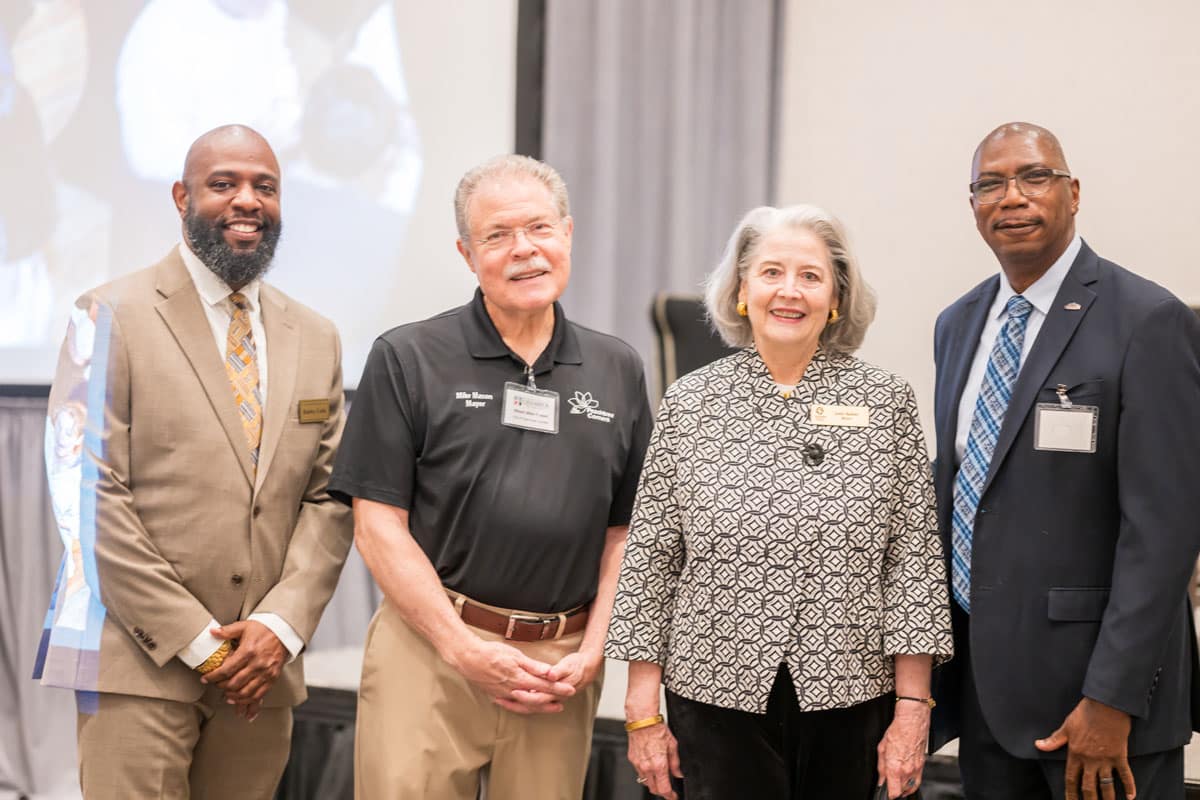
In what has now become tradition, the Southwest Gwinnett Chamber of Commerce hosted mayors from Berkeley Lake, Norcross and Peachtree Corners at a panel discussion on July 12 at the Hilton Atlanta Northeast.
The conversation centered around strategies for revitalizing and expanding metro Atlanta cities, with a focus on redevelopment, zoning ordinance reform, pedestrian and bicycle safety and investing in local schools and affordable housing initiatives.
Zoning changes
“We are beginning a really big project in our city. We have had ordinances that we’ve been working on ever since the city was incorporated in the 1950s,” said Berkeley Lake Mayor Lois Salter.
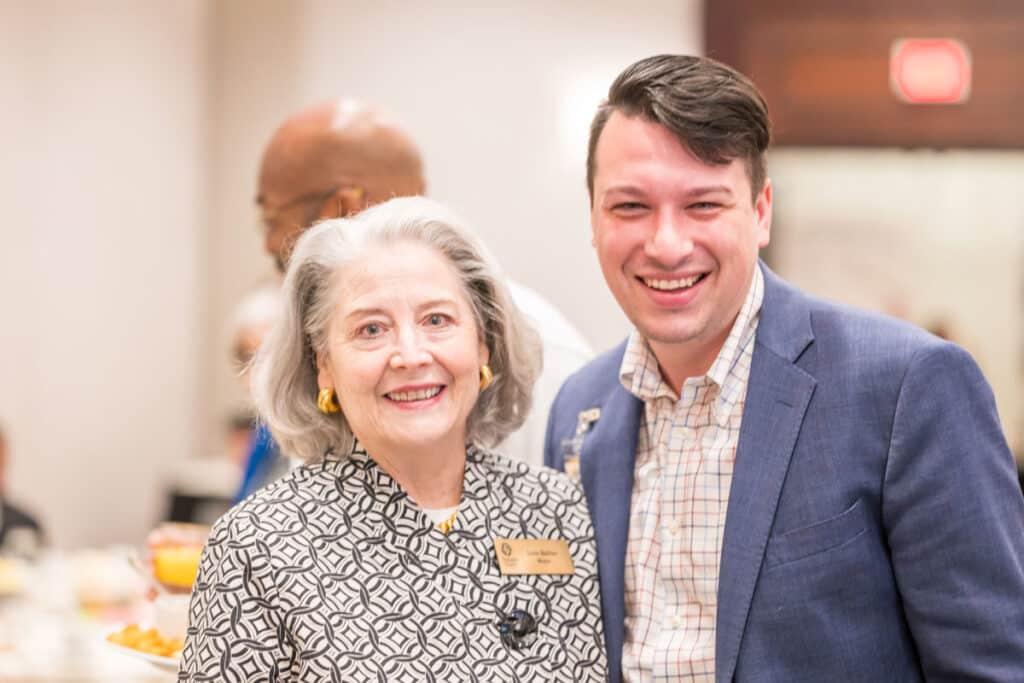
“We feel that we need to overhaul the whole zoning ordinance system and hire a consultant to come and elicit understanding and opinions from our citizens. We want them to be a part of that. We have some folks that resist any kind of regulation. They just want us to regulate their neighbors,” she added.
Norcross Mayor Craig Newton agreed that evolving needs are an important reason to change the zoning, and planning for what lies ahead is paramount. He pointed out that all Georgia cities must implement a comprehensive plan to maintain their qualified local government certifications and remain eligible for selected state funding.
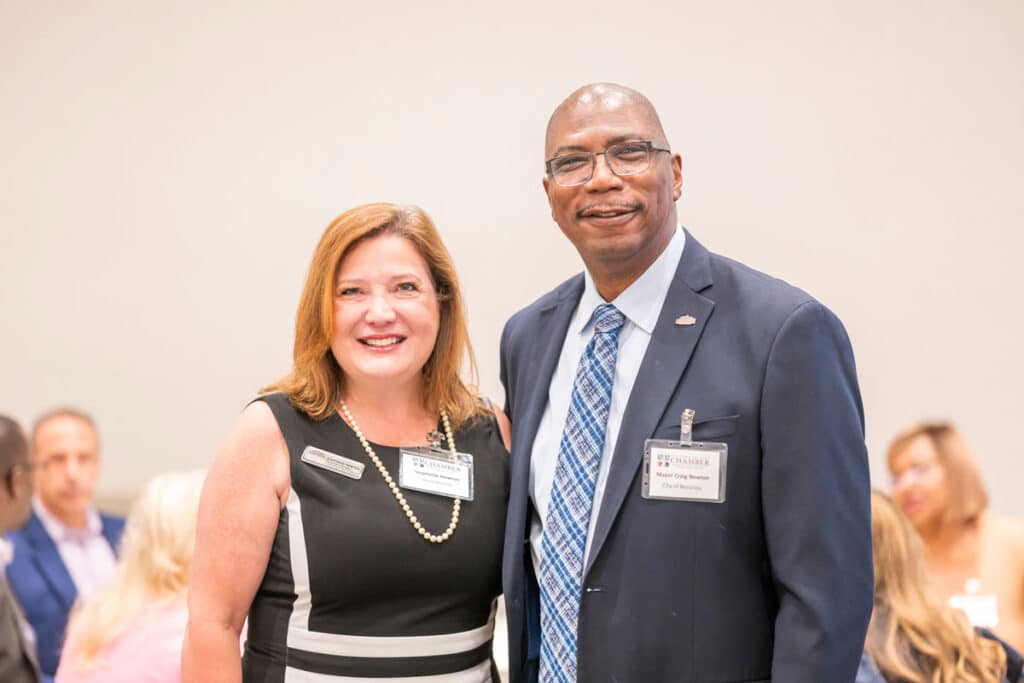
Land development
“We intend to focus on improving pedestrian bicycle safety downtown and establish a sidewalk activity improvement,” he said. “We’re also looking at approving parking in our town center and constructing the Norcross Greenway, which will bring a much-welcomed park, green space and a trail,” he added.
The county announced earlier this year that the project involves redeveloping the existing property into a park that will span almost two acres. It will offer various community spaces, including a multi-use trail, playground, covered picnic area, restroom building and a 41-space parking lot.
In addition to its amenities, a 12-foot-wide concrete trail segment will wind through the park and utility corridor, connecting Singleton Road to Dickens Road.
The trail is part of the 2018 Gwinnett Trails Countywide Trails Master Plan‘s Norcross to Lilburn Trail with an internal loop trail connecting to the neighborhood.
Commercial use
Peachtree Corners has had several “community-friendly” projects come online in the past year, but the effects of the pandemic continue to linger.
“When you think about the future, you’re thinking about the landmass and buildings and commerce. Probably the most significant issue facing a lot of us in the near term is modern office space,” said Peachtree Corners Mayor Mike Mason. “There’s a lot of space. The question is, are people going to come back?”
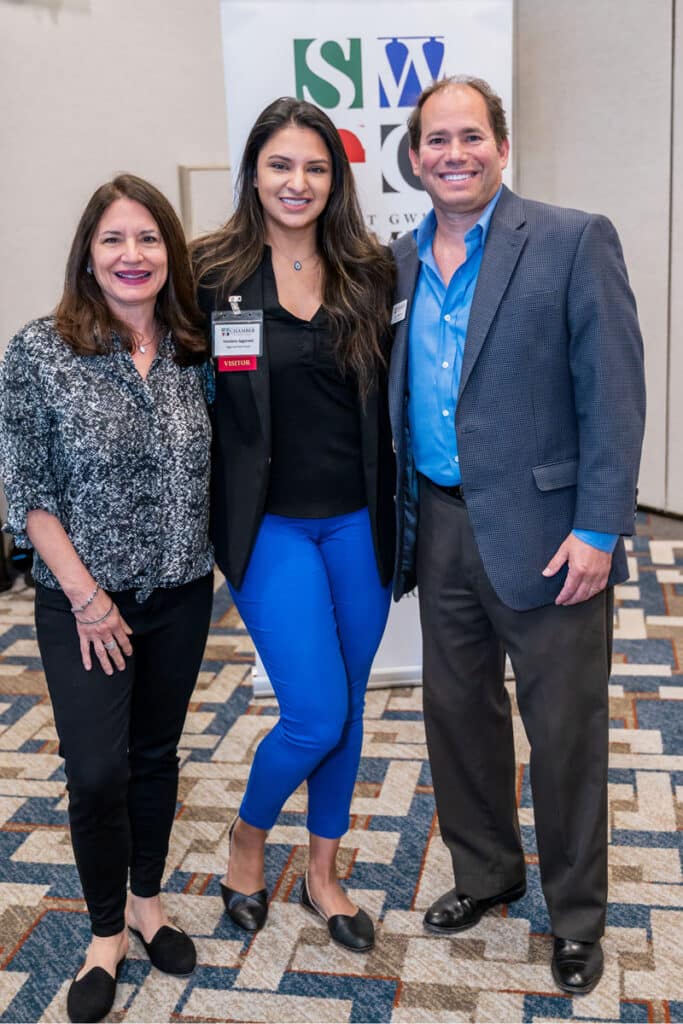
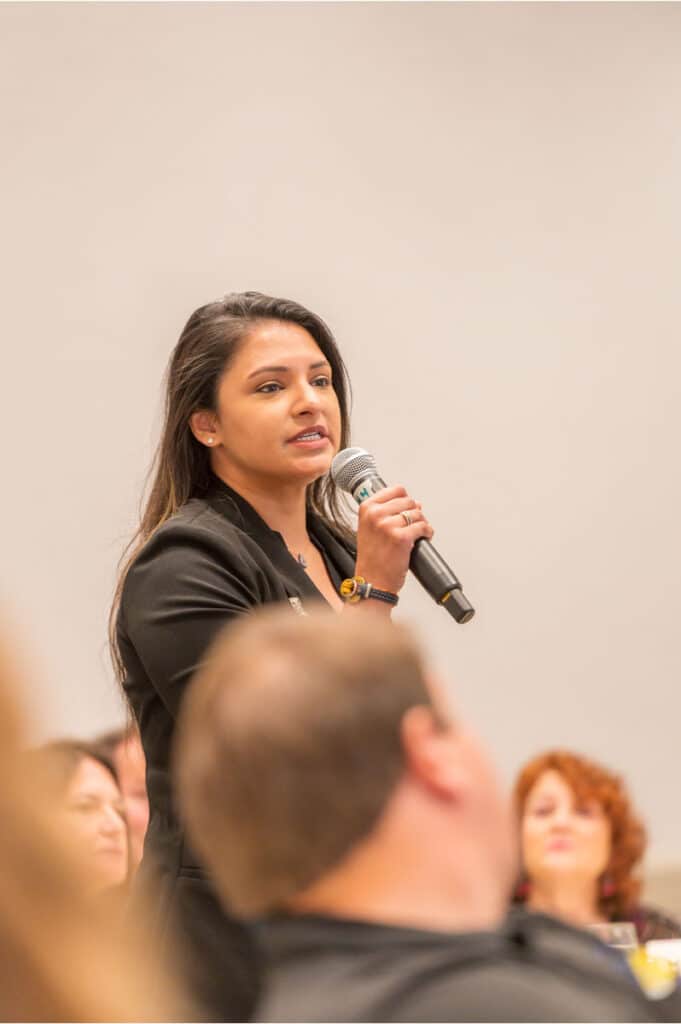
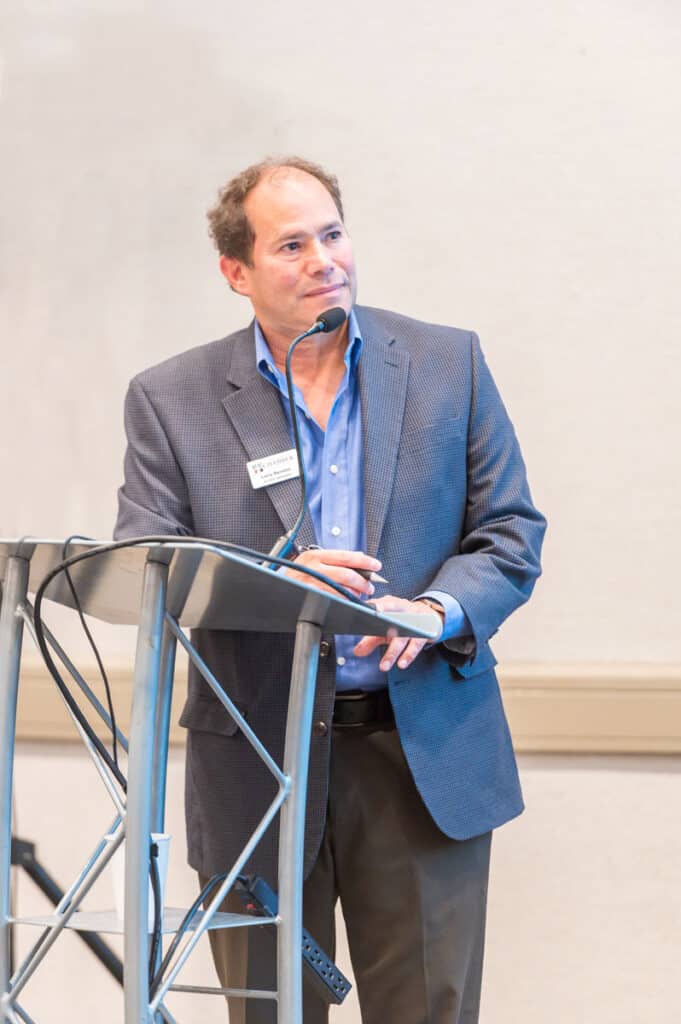
He said that the central retail area has shifted with the revitalization of The Forum and that’s making city leaders rethink city planning.
“We’re having a look at our code and things like that. But from another point of view that will drive the decision about what communities are going to look like,” he said. “For example, there are people coming into the city that say some buildings are technologically obsolete.”
Public safety
Even though Berkeley Lake is the smallest of the three cities and has the highest average home values, all the mayors agreed that public safety is a growing concern.
“Living in Norcross offers residents a dense suburban feel that’s somewhat rural compared to the city of Atlanta,” said Newton. “But some of our public safety initiatives are increasing police presence in high crime areas.”
As the only one of the three cities with a full police department, Norcross is seeking creative ways to implement effective community policing strategies to build trust and communication between law enforcement and the residents.
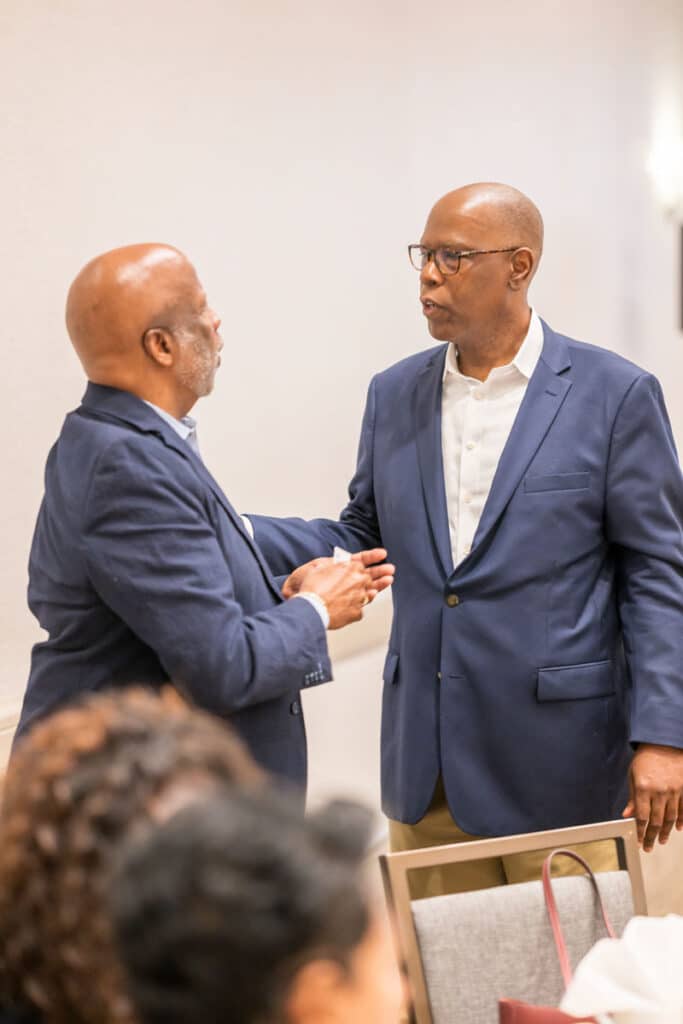
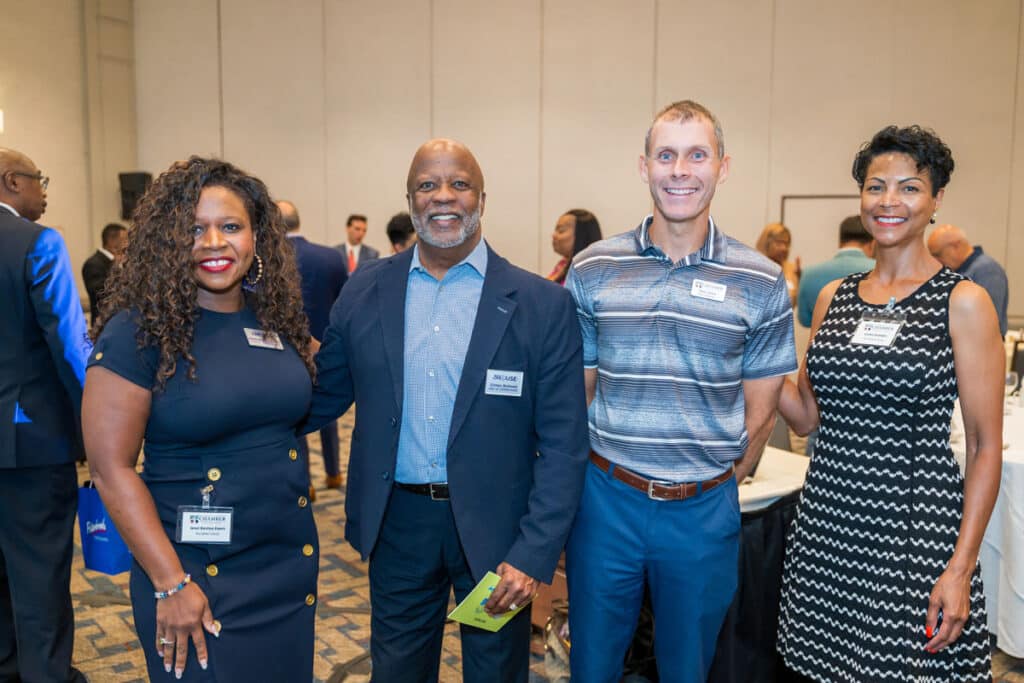
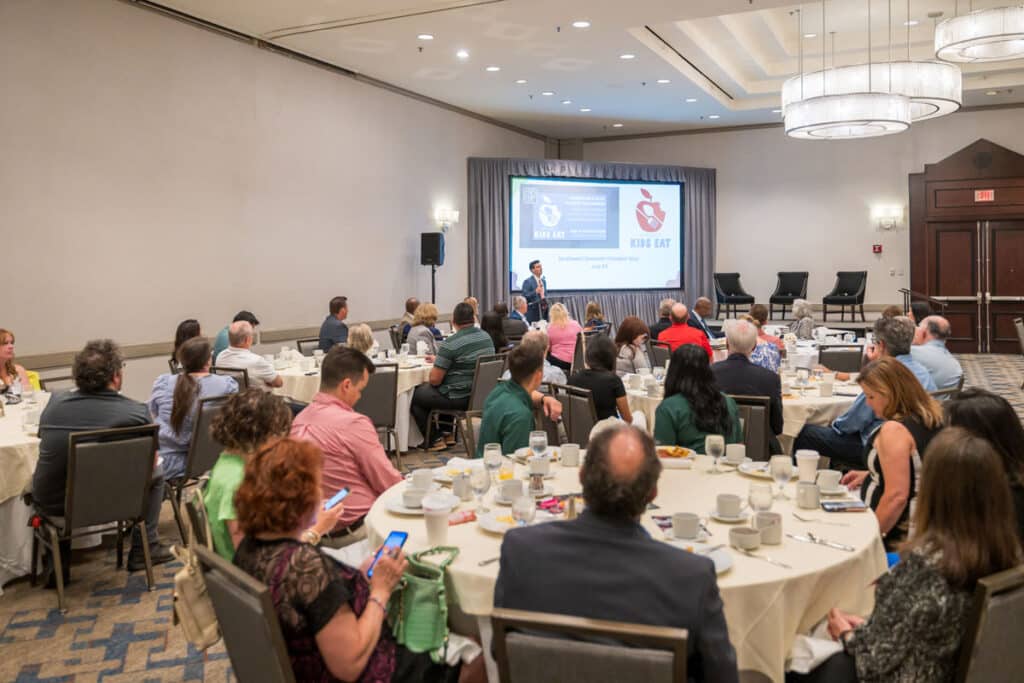
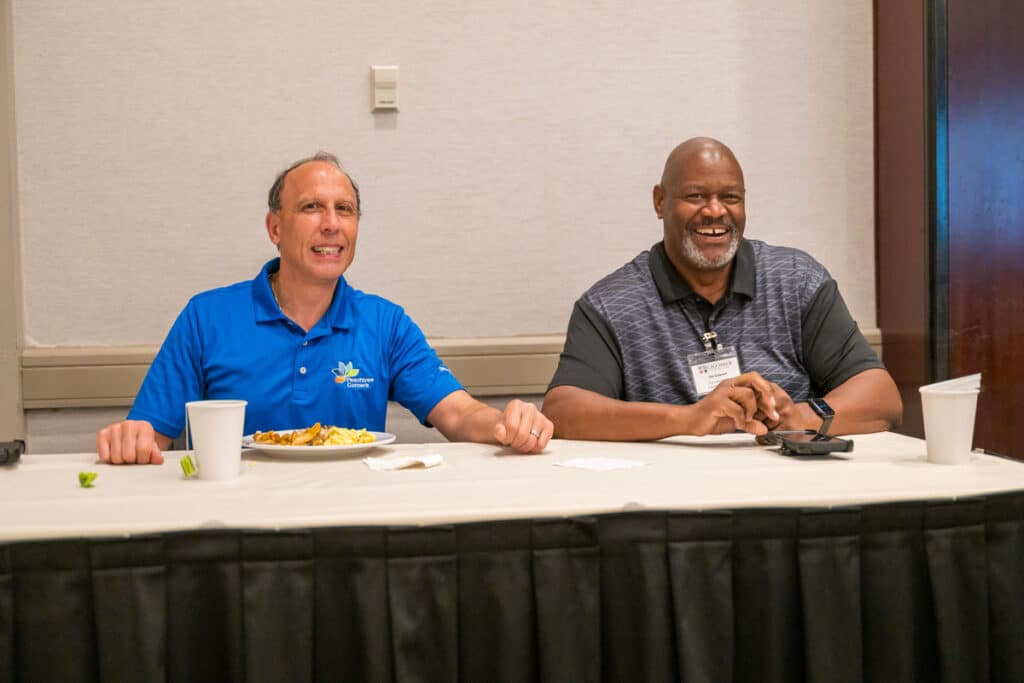
Newton mentioned programs such as Neighborhood Watch, youth outreach programs and educational initiatives along with enhancing emergency response capabilities with training for the local fire department and EMS services.
“Our response time goal is for an officer to be on-site in an emergency within 30 minutes,” he said. “But that doesn’t happen.”
Extended-stay hotels tend to attract crime, so Newton said the city has worked with owners to improve lighting in the public spaces to deter criminal activity.
“We’ve partnered with nonprofit businesses and local stakeholders to support social services employment opportunities for at-risk individuals,” he said. “By working together with various organizations and entities were able to address the complex challenge of public safety.”
Community accountability
With no police force, Berkeley Lake relies heavily on cameras and old-fashioned “knowing your neighbors,” said Salter.
“Some of our individual HOAs are buying and furnishing and paying for cameras to safeguard their neighborhoods,” she said.
Although there may be pockets of criminal behavior around the city, Salter said a police officer once described Berkeley Lake as a “black hole” of crime because there’s so little crime data.
“One of the reasons for that we feel is that historically we’ve been a very neighborly people,” she said. “There is an amazing system of community cohesiveness.”
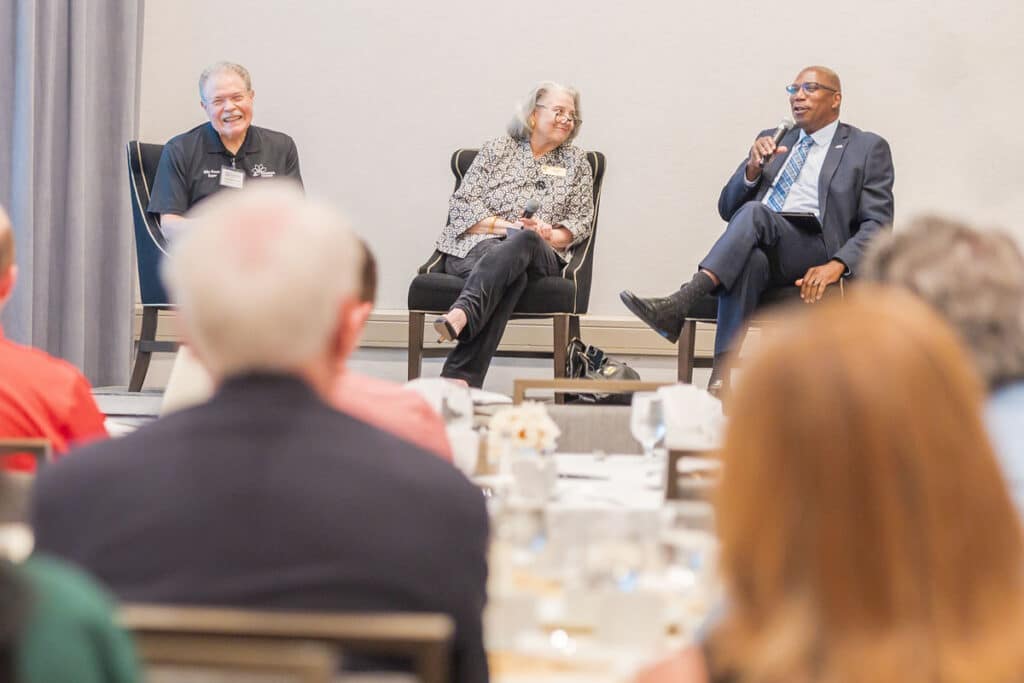
Peachtree Corners is taking its own approach.
“We’ve recently added a Marshal Service and as Lois mentioned we’re also leaning on technology,” said Mason.
The marshal department doesn’t take the place of the services provided by Gwinnett County Police, it primarily enforces city code and aids Gwinnett PD when necessary.
“We’re utilizing as much technology as we can,” said Mason.
Gwinnett PD is instructing where to locate cameras and the city keeps adding them. There have been several instances in the last year or so where coordination among agencies and the use of technology have thwarted or caught criminals.
At the end of the day, the three mayors said the cities all rely on each other. Being so close means that economic development, enhanced entertainment and other desirable amenities are boons for them all.
Related
City Government
Planning and Development is Changing in Peachtree Corners
Published
2 months agoon
June 6, 2024
From Peachtree Corners Mayor Mike Mason’s monthly column.
After the COVID-19 pandemic, the city noticed a development trend that focused on the importance of social interaction. It began seeing development applications for indoor pickleball, virtual racing, garden clubs, car clubs and other recreational uses.
When our city was established in 2012, it adopted Gwinnett County’s codes and ordinances to maintain consistency and these new social interaction-focused uses were not initially considered in the city’s current Comp Plan or zoning code.
Working from home is another market trend having a big impact on local office parks. This economic engine is driven by office parks such as Technology Park and there’s always been a priority placed on preserving office stock.
Even though the commercial office market is waning right now, that pendulum is still trying to figure out where it will settle in. Most of these new socially focused uses find the best home in an office setting.
Due to the increasing number of these applications and the evolving market trends, the city has imposed a six-month moratorium on projects in the Central Business District character area. The moratorium came into effect on May 3 and will end on November 3.
This halt will allow the city six months to pause rezoning applications, special use permits and variances applications for residential or mixed-use development. It will help the city maintain the status quo, stop new applications from coming in and allow for officials to consult with experts and delve deeper into the code and comprehensive plans.
The city plans to conduct extensive research, analysis and strategic planning during this period to help determine if any changes should be made to the comprehensive plan and zoning regulations.
For instance, it might be beneficial to designate downtown as a distinct character area separate from the central business district. Implementing new zoning regulations to transform it into an entertainment district or a unique downtown character area could be a viable option. Many cities have already adopted this type of zoning.
Office parks and businesses throughout the city provide a balance of jobs and residents that allow the city to be the second largest in the state with a zero-millage rate or no city property tax.
Therefore, as part of this process the city will research ways it can preserve, stabilize and enhance the economic engine through the activation of underutilized spaces within office parks.
This proactive approach will help maintain the job-to-resident balance that allows the zero-millage rate while positioning the city for success as the office market pendulum settles.
The most important thing this moratorium does is allow the city to consider what will work best for Peachtree Corners. Furthermore, it communicates to developers that the city requires a pause because current zoning regulations and comprehensive plan do not adequately address future goals.
Related
City Government
Peachtree Corners Welcomes New Community Development Director
Published
2 months agoon
June 2, 2024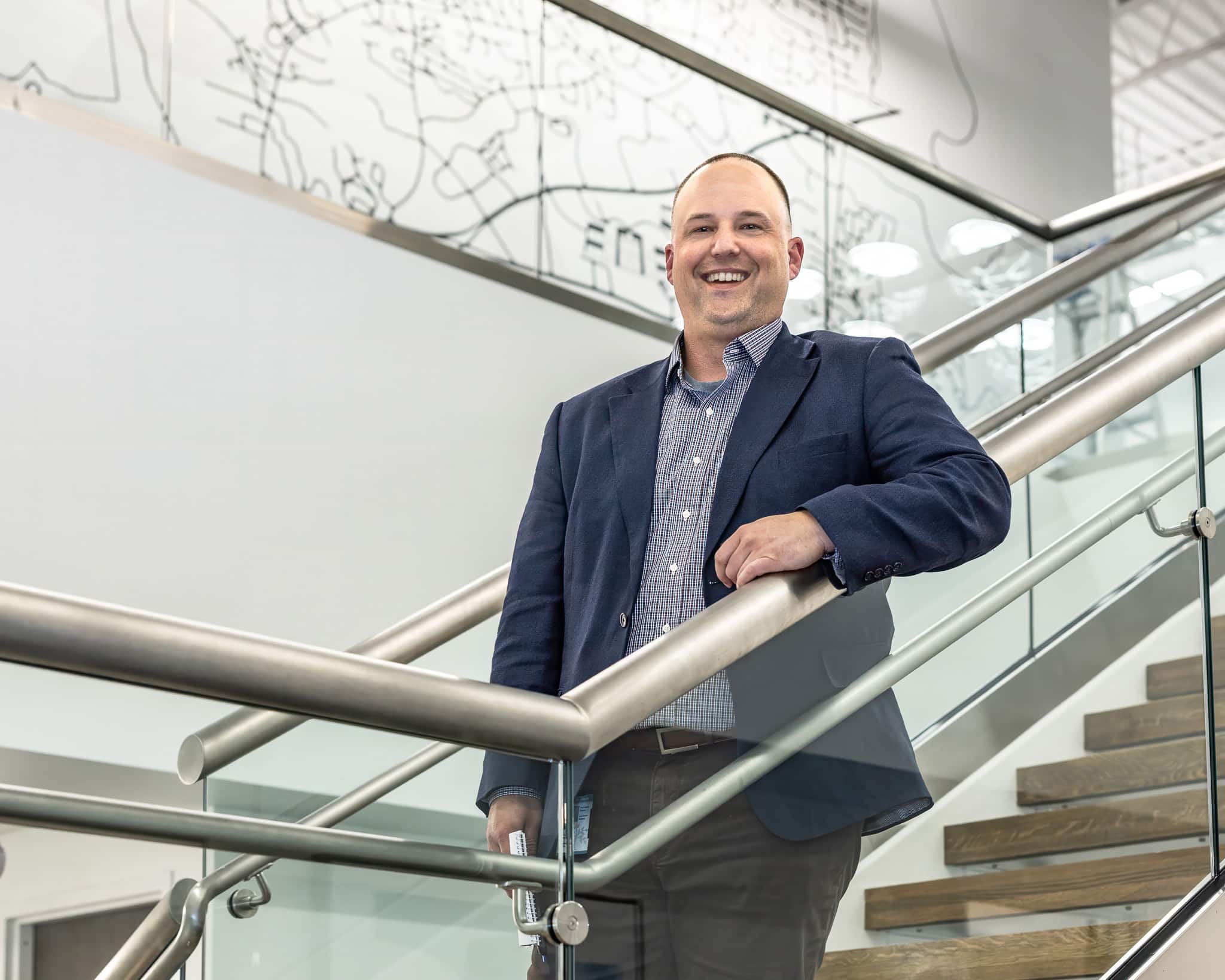
With community development director Diana Wheeler stepping down to pursue a consulting career, Peachtree Corners city leadership turned a challenge into an opportunity.
In January, Shaun Adams was hired as the assistant city attorney to oversee compliance for land use and economic development-related matters and help with legal issues.
His background in public and private sector development made him the ideal replacement.
As luck would have it, Adams moved to Georgia in 2005, selling real estate while attending law school.
“I actually started working down at the capital a lot, lobbying on various policies right out of law school,” he said. “I was the legal counsel for the Senate Judiciary, and that exposed me to ACCG, which is the State County Association, which represents all staff and elected officials for counties across the state.”
With the motto, Advancing Georgia’s Counties, ACCG helps with the policy aspect of things like training and education.
“While I was a lobbyist for them, I focused on economic development, infrastructure-related issues and whatever policies went into place,” Adams said. “We also went around the state and trained our commissioners and their staff on some of those policies and put their new processes in place.”
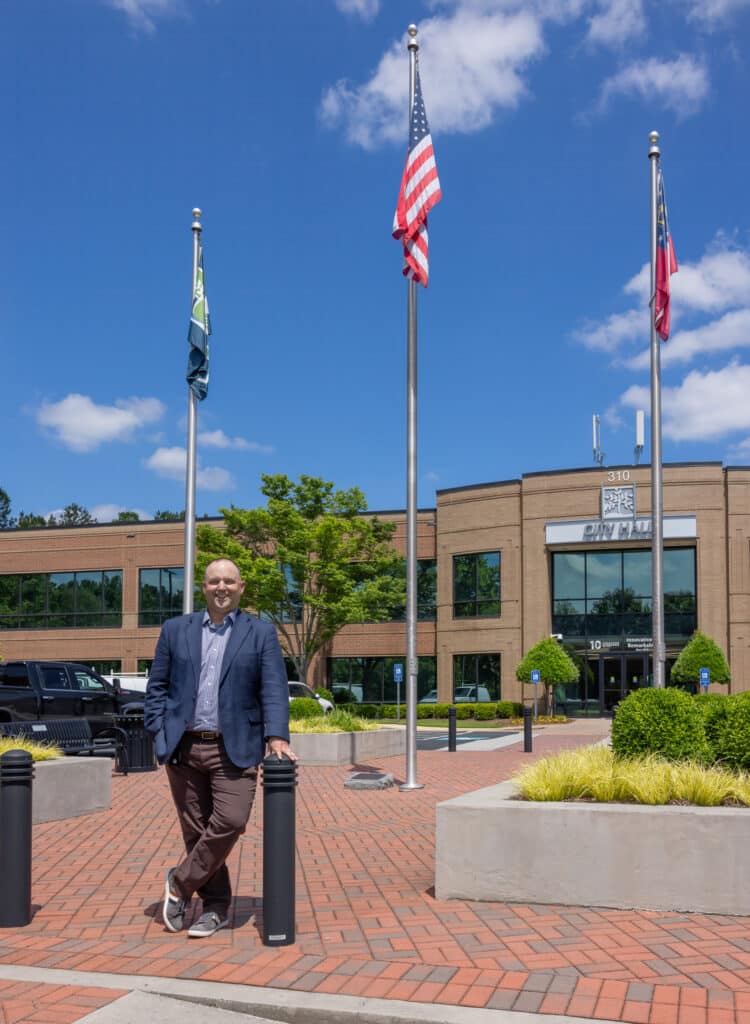
Local government possibilities
“After a handful of years, I got lured away into the private sector,” he said.
Working on land use and government relations matters from the other side of the table, Adams represented developers and investors.
“Sometimes [investors would] come to me with a property that they bought, and they’d say, ‘Hey, we bought this on investment. We’d like to see how we can make the highest and best use of it. Help us create a vision,’” he said. “So, I helped put a team together to determine what we thought could go on the site based off of local government zoning.”
His job entailed working with architects and engineers to design the site and help the client take it to market. Ultimately, the contract purchaser would come in and seek needed entitlements.
“I would help with that,” Adams said. “Those were the fun ones because you got to start on the ground.”
Adams got to know many different local government jurisdictions and worked extensively around metro Atlanta on various matters. On a busy week, he may work with five different jurisdictions across the state.
As a family man with a wife and two sons, he began looking for something that would keep him closer to home.
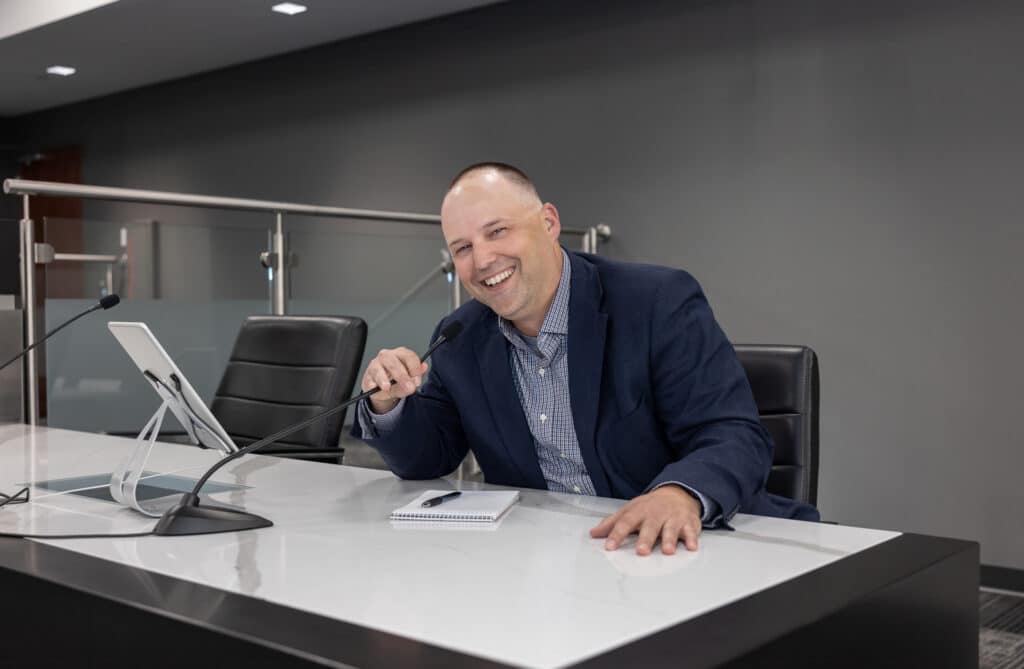
A perfect fit
City Manager Brian Johnson says it was serendipitous that Adams was looking for a position at a time when the city needed someone like him.
“It’s actually a hard position to fill, and I just happened to catch him,” said Johnson. “We were familiar with each other because he’s represented a number of clients coming before the city.”
Johnson said that Adams was legal counsel for some of the most significant developments in the last few years: North American Properties purchasing and revitalizing The Forum, housing development Waterside, and Intuitive Surgical moving its headquarters from the West Coast.
“He was on the other side of the table as we worked together to make these projects ultimately better for the city and better than they were upon their initial submittal,” Johnson said.
“And I knew then that he was a really knowledgeable guy that really knows how to deal with people. He’s a problem solver. He’s always looking for ways to figure out how to resolve conflict and navigate minefields as it relates to land use and all the laws and zoning that apply to it,” he added.
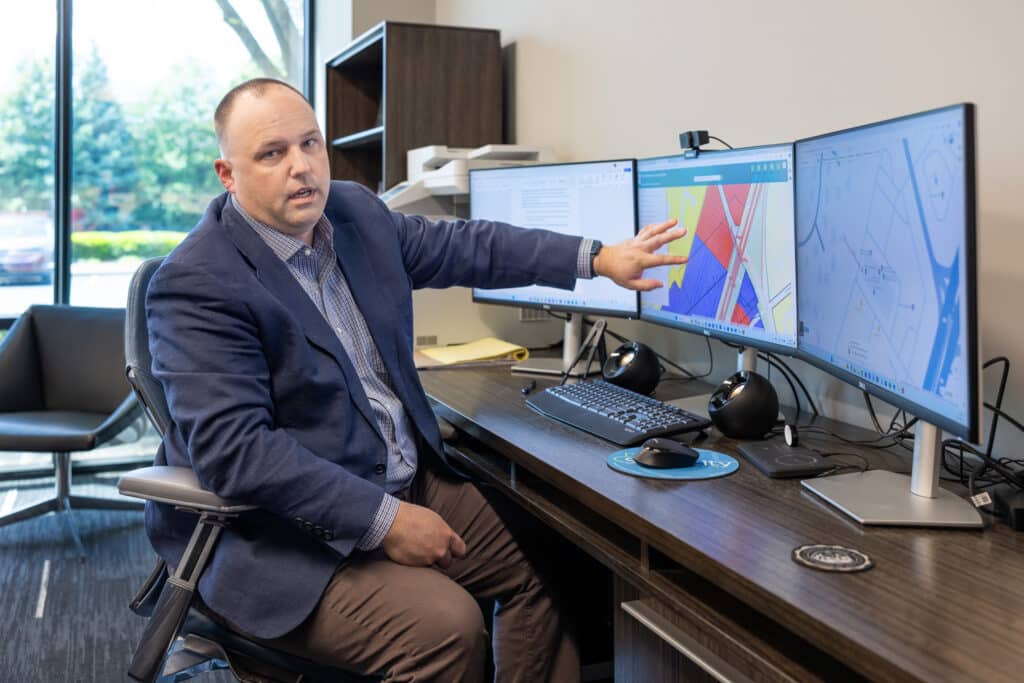
Changes to the job
Although Wheeler is no longer a staffer, she’s still doing work for the city.
With Adams’ legal background, the events planning team will be transitioning out from under community development.
“By taking that off my plate, it’ll allow me to do more with the legal side of things that the position didn’t do previously,” he said.
There will also be a shift with code enforcement duties moving under Chief Marshal Edward Restrepo.
“I moved code enforcement underneath the city marshal’s office because code enforcement and law enforcement are almost like fraternal twins — they both do very similar things,” said Johnson. “Each of them is enforcing a different level of law. Code enforcement is municipal code, and law enforcement is state code, but they work hand in hand.”
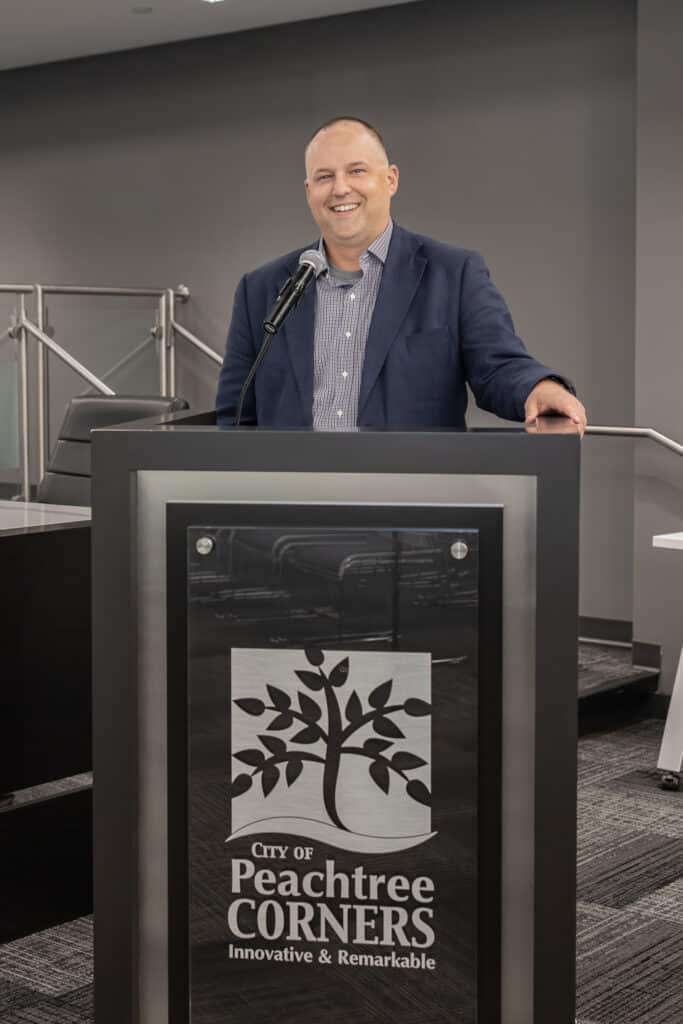
The events planning through the end of the year has already been moved from the community development director’s department. As a consultant, Wheeler will work with other contractors to manage the happenings at the Town Center. Director of Communications Louis Svehla has already moved into managing premier events, Johnson said adding that the city may use more consultants in the future under Svehla’s management.
“He has really shown his ability to manage special events very adeptly. He really showed me that skill set when we had last year’s Criterium bike race,” said Johnson. “I decided to take advantage of some opportunities, including our partnership with Audi, which we were going to announce to the whole vulnerable road user thing.”
With only three months to prepare, Svehla pulled off the event without a hitch.
“He did an outstanding job and so he is capable of taking the management of our community events, our concerts and stuff,” said Johnson.
Johnson said the city is still utilizing consultants for some aspects of special events, but if consultant fees become more expensive than hiring someone full-time to assist Svehla, he’ll make that call.
“All those moves have happened, and I’ll sum it up by just saying that I’m just playing to the strengths of these people and utilizing a great team that I have, and it’s working out really well,” Johnson said.
Related
Read the Digital Edition
Subscribe
Keep Up With Peachtree Corners News
Join our mailing list to receive the latest news and updates from our team.
You have Successfully Subscribed!

What’s going on at Jones Bridge Park and the Challenges of Urban Development

Taste of Peachtree Corners: PCBA Showcases Local Restaurants

The Forum Gives Sneak Peek of New Eateries and Community Spaces

Southwest Gwinnett Mayors Share Visions for the Future

8 Events Happening In and Around Peachtree Corners This August

Peachtree Corners Shines Bright with Light Up the Corners Glow Race this August

Peachtree Corners Shines Bright with Light Up the Corners Glow Race this August

The Forum Gives Sneak Peek of New Eateries and Community Spaces

8 Events Happening In and Around Peachtree Corners This August

Southwest Gwinnett Mayors Share Visions for the Future

Taste of Peachtree Corners: PCBA Showcases Local Restaurants

What’s going on at Jones Bridge Park and the Challenges of Urban Development

Local Resident Opens AtWork Location in Peachtree Corners

CHRIS 180 Expands its Services into Gwinnett County [Podcast]

Light up the Corners [Video]

Capitalist Sage: Business Leadership in Your Community [Podcast]

Cliff Bramble: A Culinary Adventure through Italy

Top 10 Brunch Places in Gwinnett County

A Hunger for Hospitality

THE CORNERS EPISODE 3 – BLAXICAN PART 1

Top 10 Indoor Things To Do This Winter

The ED Hour: What it takes to Remove Barriers from Education
Peachtree Corners Life
Topics and Categories
Trending
-
Business1 week ago
Taste of Peachtree Corners: PCBA Showcases Local Restaurants
-
Business2 days ago
The Forum Gives Sneak Peek of New Eateries and Community Spaces
-
City Government4 days ago
Southwest Gwinnett Mayors Share Visions for the Future
-
Around Atlanta4 days ago
8 Events Happening In and Around Peachtree Corners This August







